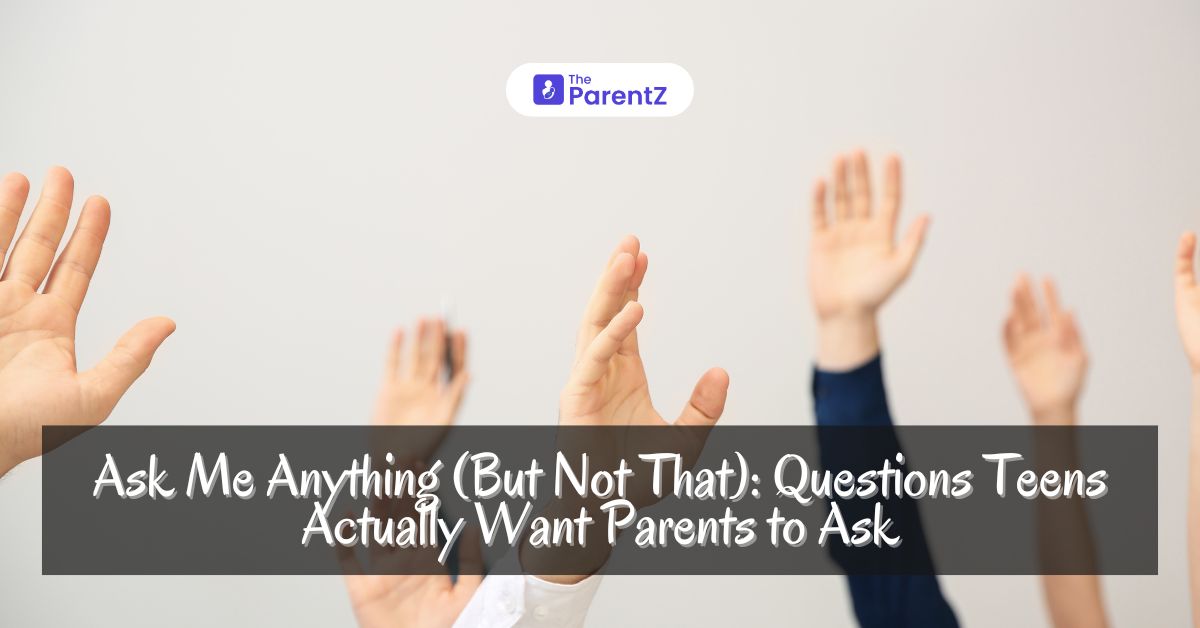Let’s be honest, teenagers are a complex bunch. They’re navigating a whirlwind of emotions, social dynamics, and self-discovery, often leaving parents feeling lost in translation. The “birds and the bees” talk might seem like a distant memory, replaced by slammed doors and monosyllabic responses.
But what if we flipped the script? Instead of the dreaded interrogation, what if we asked questions that truly opened the door to communication? Here’s the key: forget the “gotcha” questions and focus on understanding their world from their perspective.
Why Teens Shut Down
From a parent’s point of view, a question might seem well-meaning. “How was school today?” can be a springboard for conversation. However, teenagers might interpret this as an invitation to dissect their every move, triggering anxiety or a sense of judgment.
Here’s the thing: teens are building their own identities, separate from their parents. Questions that feel intrusive or prying can shut down communication before it even starts. Remember, they’re not little kids anymore, but they also haven’t fully navigated the complexities of adulthood.
Seeing the World Through Their Eyes
So, how do we bridge this gap? The answer lies in empathy and understanding. Here are some questions you can ask to foster open communication:
- “What’s been on your mind lately?” This broad question allows them to take the lead and discuss what’s important to them.
- “What’s something that’s been challenging you at school?” This shows interest in their academic life, without pressuring for grades.
- “How are your friendships going?” This acknowledges the importance of their social circle, without being intrusive.
- “What are you passionate about these days?” This validates their interests and opens a door to exploring their future aspirations.
It’s a Two-Way Street
Of course, communication is a two-way street. While asking open-ended questions is key, here are some additional tips:
- Be an active listener. Pay attention not just to the words, but also body language and tone.
- Avoid judgment. Let them know it’s a safe space to express their thoughts and feelings, without fear of consequences.
- Share your own experiences (selectively). Let them know you understand the challenges of growing up, without making it about you.
- Focus on solutions, not blame. If they share a problem, work together to find solutions, rather than assigning blame.
Remember
- It takes time. Building trust and open communication doesn’t happen overnight, especially if previous interactions have been strained.
- Be patient. Don’t get discouraged if they don’t open up immediately. Keep asking questions and showing genuine interest.
- Celebrate small wins. Applaud even tiny steps they take towards open communication.
- Seek professional help if needed. Sometimes, there might be deeper issues at play. Don’t hesitate to seek help from a therapist or counselor who specializes in parent-teen communication.
The teenage years are a time of immense growth and change. By asking the right questions and fostering a safe space for open communication, you can become a trusted confidant and guide for your teen. This approach paves the way for a more fulfilling relationship throughout their lives.
Remember, communication is a bridge between you and your teen. Ask the questions that matter, listen with an open heart, and watch your connection grow stronger.









Be the first one to comment on this story.